By Matt O’Keefe
Comics Experience, an online school for individuals who want to create and publish comics, has already been making waves in the industry as the birthplace of new talent like Morning Glories alum Nick Spencer and Strange Nation writer Paul Allor. Now CEX is branching into publishing, collaborating with IDW to deliver creator-owned comics made by some of its brightest students. I spoke to, Rob Anderson, whose miniseries Creature Cops will be be released through the imprint, about his road to Comics Experience and IDW and his interest in writing an animal-based procedural.
How did Creature Cops come together?
The origin of the idea came in two parts. The first part was around 2000, when I read a news story about a performance artist who convinced a French geneticist to create a “transgenic” rabbit by injecting a rabbit egg with jellyfish proteins. The resulting rabbit glowed green under certain light. Aside from this rabbit being used for some sort of “art statement,” it just seemed like this sort of thing would probably get out of control some day.
The second piece fell into place when I was volunteering at a local animal shelter. At some point, I started thinking about how hard an Animal Control Officer’s job can be, and I got interested in writing a story about them. And then it struck me how MUCH harder the job would be, if they were dealing with transgenic animals. When I took one of Andy Schmidt’s Comics Experience writing courses, I pitched it as my class project. I eventually produced that short story, and some other shorts, and got interested in doing a full miniseries. Luckily, I hooked up with artist Fernando Melek via the Internet through Stone Tower Studios and Lucas Urrutia. That was the final piece of it coming together as the mini-series you see today.
How did the feedback you received from peers at Comics Experience influence the series?
After that initial short story, I took Andy’s Advanced Comic Book Writing course. In that course, I outlined the whole series and wrote a draft of the first issue. It really helped me sharpen my focus on the characters and the setting. In fact, by the end of it, I scrapped the entire first issue, the outline, and much of the set-up–but not the characters–and started over. While I was receiving a lot of positive feedback, I could also see things that weren’t working, and I stepped back, focusing much more on the characters and their initial story arcs.
By the time I began posting the reworked mini-series on the Creators Workshop later, the basics were still there — the same characters, the animals, but the story was much tighter and focused.
You received feedback from a number of peers, but still had an editor in Paul Allor. What did he bring to the table?
Paul and I have collaborated on so many projects at this point. We met back around 2010, when the Creators Workshop was just founded. I’ve edited a lot of his work, he’s edited a lot of mine, and we’ve been a sounding board for each other on more projects than I could count at this point.
My general process is, I’d do what I considered a solid draft, then I’d wring it out on the Creators Workshop–ask folks to tear it apart and note every problem they had with it. I’d revise it on that basis, then bring in Paul, with his knives sharpened, to really tell me straight out what was working and what wasn’t. If I was having a hard time sorting out conflicting reactions by other readers — and my own instincts — I’d talk that through with him as well. I trust him to always tell me the brutal truth, and he expects the same from me. So, from major issues to the most minor technical thing, he was there to give a (trusted) outside opinion, to argue, to encourage, whenever I needed it. He’s an incredibly talented individual and it’s been a pleasure watching his career take off, from his creator-owned work on things like Strange Nation from Monkeybrain comics, to all his work-for-hire on things like TMNT and GI Joe. I can’t wait to read his own CE/IDW title, the war drama/love story TET!
How did the opportunity arise to be published at IDW?
Creature Cops (along with TET) is being published as part of a new publishing alliance between the online educational company, Comics Experience and IDW Publishing. All the projects were developed in Comics Experience’s online community, the Creators Workshop. The new publishing alliance is focused on developing new talent, and CE founder Andy Schmidt was very familiar with Creature Cops, from the courses and the Workshop. When the publishing alliance was coming together, Andy asked me if I’d be interested in having Creature Cops as the first out of the gate, and I said “yes” immediately.
What interested you in doing a comic book procedural?
My interest really started with telling a story about Animal Control Officers, and the characters I had in my mind. Once you start thinking about telling a story about cops, then the idea of it being a procedural is a fairly natural progression. But my interest was driven more by the characters (human and animal), then in writing a procedural, per se. I don’t really think of Creature Cops as a pure procedural. There are procedural elements as they work one of the cases, but it’s more about the characters and the challenges they face.
Why do you think procedurals are relatively uncommon in this medium?
I think it’s less that procedurals are uncommon and more that superheroes dominate. I’d argue MOST non-superhero genres are–relatively speaking–less common than superheroes, if you’re looking at market share. Having said that, I’ve been reading comic books since the 1970’s, and this is the best era I’ve seen for people who want to read a diversity of genres in a diversity of formats, from traditional comics in print or digital to things like webcomics.
But procedurals, specifically? They’re a sub-genre of crime, and crime comics are everywhere. Maybe procedurals are less common due to the challenges of pacing it in a comic book form. I approached Creature Cops a bit differently than other comics I’ve written, and I used multiple, interwoven storylines to a much greater extent, so I don’t think it just reads like a step-by-step recitation of an investigation.
One concern I’ve seen raised about procedurals-as-comics is a financial one. It costs nothing to watch and only $2 to own a 42-minute episode of a cop drama. A similar story told as a comic over three issues costs six times that. Is that a concern for you?
Creature Cops has been a labor of love from the beginning, so the economics of television drama versus comic books really didn’t factor into it at all for me. I just had a story I wanted to tell, and I hope folks enjoy it! If someone enjoy the medium of comics, and the story interests them, hopefully they’ll check it out, rather than focusing on some calculation related to TV shows.
Between this, Rex: Zombie Killer and your contributions to My Little Pony, the bulk of your comic book writing has featured animals as protagonists. Is that a niche that you think needs filling or is it more fueled by where your interests lie?
It’s definitely driven by my interests. From childhood to today, I’ve always loved animal stories in all media — from novels like Homeward Bound and Watership Down, to comic books like WE3, possibly my favorite comic book of all time. Even the original Planet of the Apes movies, which I was crazy for as a kid, featured talking animals, obviously.
Ironically, Creature Cops is probably the farthest from that, of what I’ve written. There’s no talking animals, and the main protagonists are the human officers, although there are some animals who are important characters as well… from the Panda Dog to the Horned Mastiff.
Obviously, procedurals are intended to go past the first whodunit. Do you have plans/hopes to continue Creature Cops after this initial miniseries?
I’d love to continue Creature Cops, if it’s sustainable in practical terms. From the creative side, all of the officers have pretty extensive backstories and lives, so there’s so much to explore. And I have a ton of case ideas, some influenced by real-life animal control issues, others purely from my imagination. It’s a hoot playing in this world, and I’d love to return to it someday.
What other projects are you working on right now?
I have a couple other projects in development, but nothing far enough along that I can discuss yet. However, I am looking at getting the Rex, Zombie Killer collection out as a trade paperback and digitally in the near future for anyone interested in checking out more of my work.
Creature Cops #1 (of 3) comes out from IDW Publishing tomorrow 1/28 at your local comic book shop and on ComiXology.


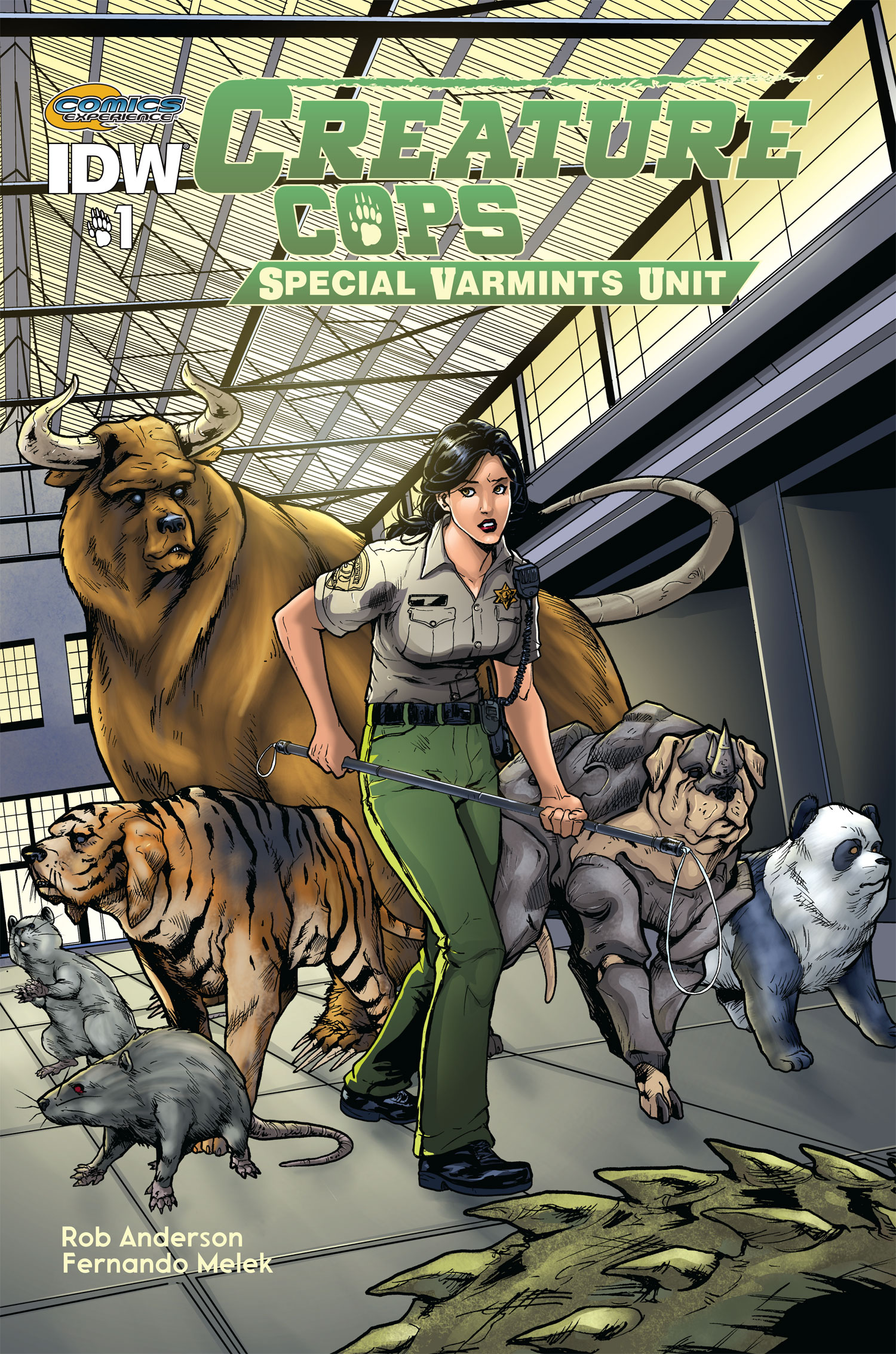
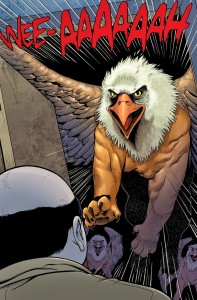
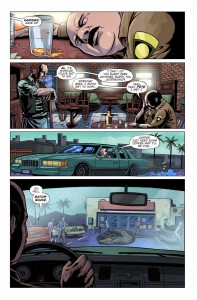
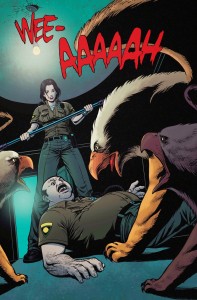
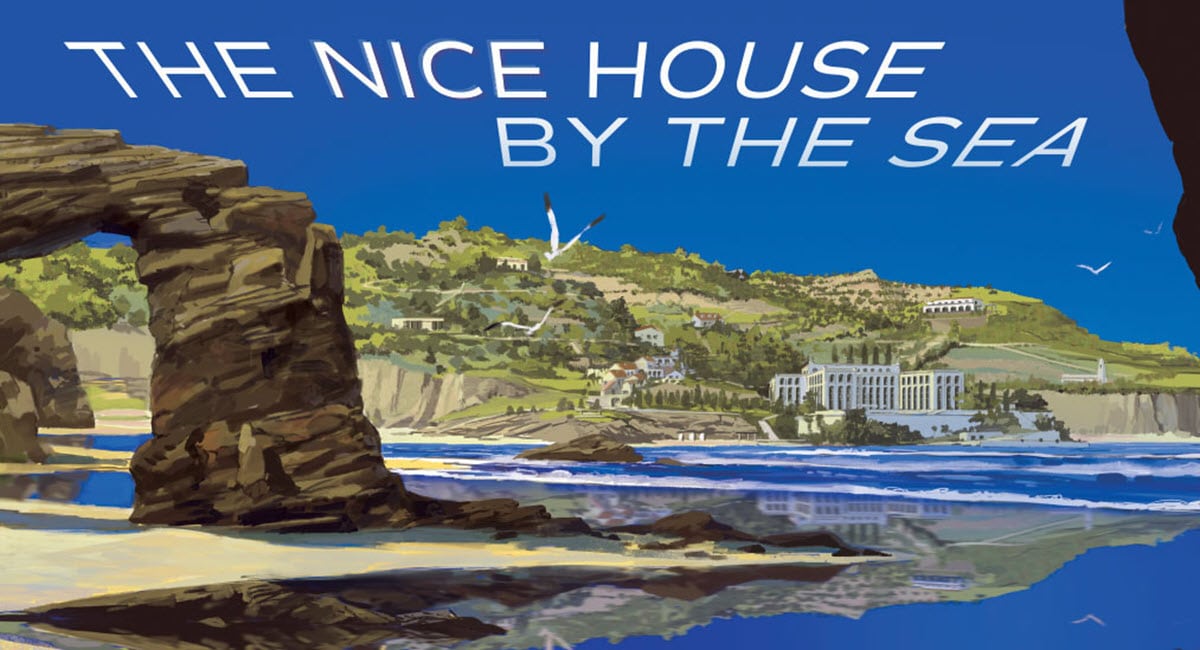
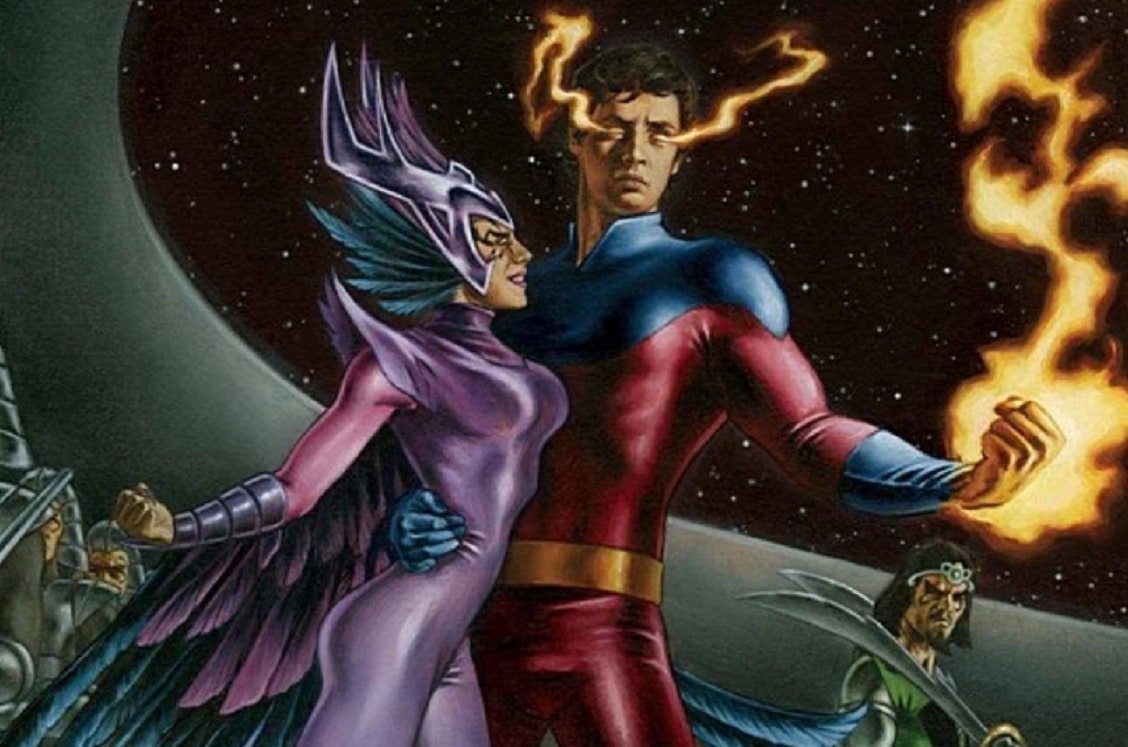
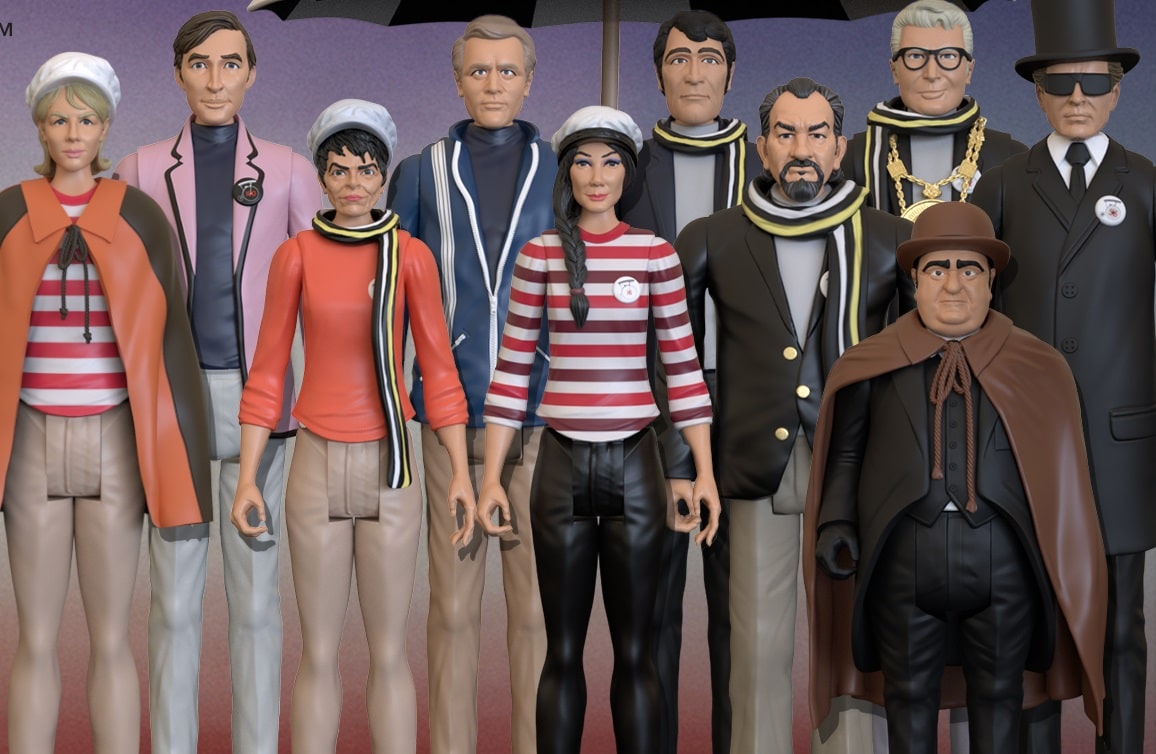

“One concern I’ve seen raised about procedurals-as-comics is a financial one.” I thought this cost comparison was interesting, but Rob Anderson missed an opportunity to ‘sell’ in his response.
Instead of chiding the interviewer about how irrelevant the question is, he should have used this moment to praise the value of the comic: is it good, is it an investment in the career of future comic creators, is it a small print run that needs our support?
My first thought is that this could potentially edge into some of my areas of interest (animal rescue, crime drama). My second is that I just can’t justify another $4 comic on my pull right now. Maybe I’ll grab it digitally the next time I have a sparse week.
Comments are closed.